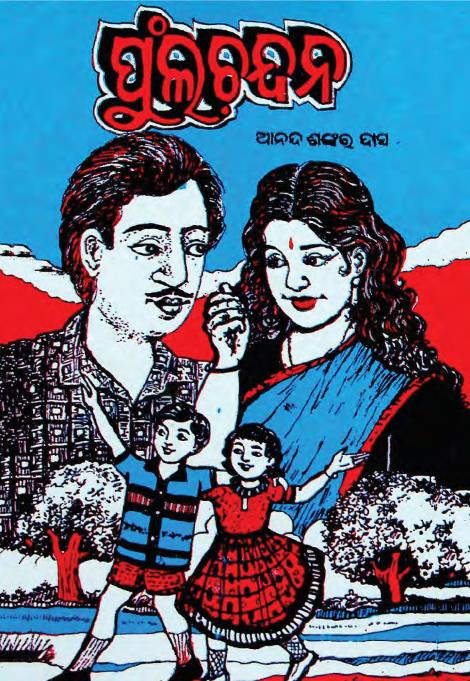Phula Chandan, a poignant drama penned by Anand Sankar Das and published in 1999, delves into the intricate fabric of society, weaving together themes of tradition, love, and social issues. This sub-drama captures the essence of human emotions while addressing the socio-cultural dynamics that often dictate the lives of individuals.
At its core, Phula Chandan revolves around the life of its protagonist, whose journey is marked by the conflicts arising from societal norms and personal aspirations. The narrative unfolds in a small village, where the interplay of tradition and modernity sets the stage for the unfolding drama. The title, which translates to Fragrant Flower, serves as a metaphor for beauty, hope, and the potential for personal growth amidst adversity.
The characters in Phula Chandan are carefully crafted to reflect the diverse strata of society. Each character faces their own struggles—be it familial expectations, societal pressures, or personal dilemmas. The protagonist’s quest for identity and belonging drives the narrative forward, resonating with anyone who has fought against societal constraints to find their true self.
Phula Chandan shines a light on several pressing social issues, including gender roles, economic disparities, and the clash between tradition and modernity. Anand Sankar Das’s keen observation and insightful commentary shed light on how these social constructs shape the lives of individuals, often limiting their freedom and potential.
For instance, the play poignantly addresses gender inequality, showcasing the challenges faced by female characters who aspire for independence in a patriarchal society. The struggles of these women serve to highlight the urgent need for societal change—a theme that remains relevant today.
Moreover, the dynamics of familial relationships are intricately explored. The emotional tug-of-war between personal desires and familial obligations is a recurring motif. Das masterfully portrays how love can both uplift and constrain, making the audience reflect on the complexity of human relationships.
Das employs a unique blend of traditional and contemporary theatrical elements in Phula Chandan. The dialogues are poignant, evoking deep emotions, while the use of local dialect adds authenticity to the narrative. The playwright’s skillful use of humor and pathos creates a balanced atmosphere, ensuring that the audience remains engaged throughout the performance.
The dramatic structure allows for dynamic character development, revealing the inner conflicts and transformations that the characters undergo. The play’s climax is a powerful moment where personal and societal conflicts collide, leading to a resolution that, while not entirely satisfying, encourages introspection and discussion among viewers.
Books Info
| Books name | Phula Chandan / ଫୁଲଚନ୍ଦନ |
| Author | Anand Sankar Das |
| No Of pages | 85 |
| Publisher | Chitrakala Prakashni |
| Publication | 1999 |
| Printed At | Laxmi Printex |
| Distributor | NA |

